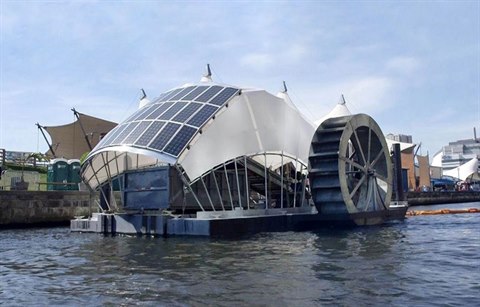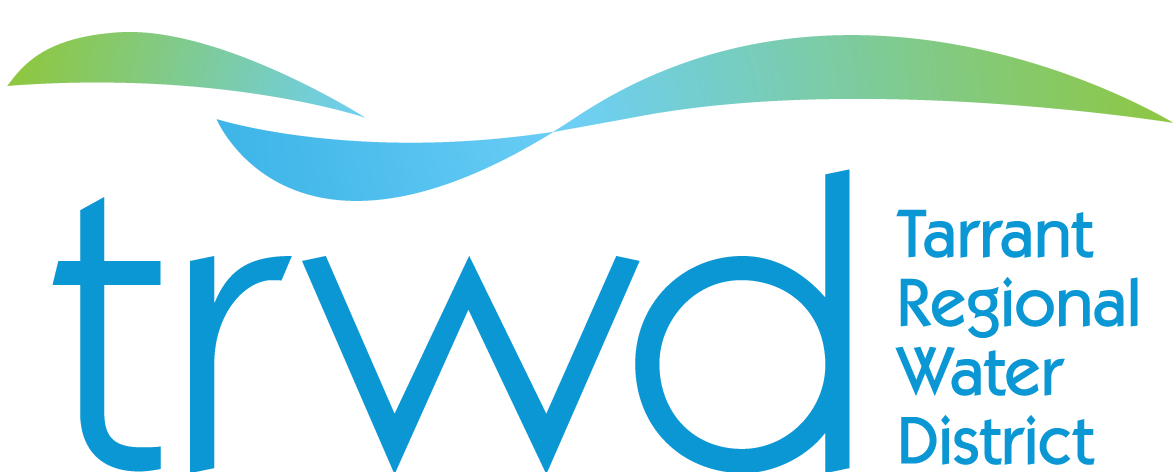
Published originally on City of Fort Worth’s website on December 15, 2021.
Fort Worth is getting its feet wet with an innovative method for removing litter in the Trinity River.
The City of Fort Worth, Tarrant Regional Water District and community partners are investing in two solar-powered waterwheels – giant wheel-based machines placed in flowing waterways to collect and remove floatable pollution. It has been said that waterwheels look like a cross between an old grain mill and a covered wagon. They’re powered by energy from the sun and river current. The river current assists in turning the wheel; solar-powered pumps work a conveyer to lift trash and deposit it into a detachable dumpster.
The plan is to install at least two waterwheels on the Trinity River, near downtown Fort Worth, helping to clean the Clear Fork and West Fork of the river.
On Tuesday evening, the City Council agreed to accept various private donations to support the design, installation and maintenance of the Trinity River Waterwheels Initiative.
The initiative has an upfront construction and installation cost of $600,000 per waterwheel. Once installed, the cost is minimal with an estimated annual maintenance cost per waterwheel of $50,000. The annual cost includes the disposal of collected wastes, system checks and annual system audits to maintain the waterwheels.
“Everyone wants access to clean water and the ability to enjoy recreational activities without coming into contact with trash or stormwater pollution,” said Brandon Bennett, code compliance director for Fort Worth. “The concept behind waterwheels couldn’t be any simpler, but the results are astonishing when it comes to cleaning tons of trash pollution from waterways in a short period of time.”
The goal is to fund both the construction and 10 years of maintenance through community donations. This will require about $600,000 per waterwheel ($1.2 million total) and another $1 million for 10 years of maintenance.
This project provides an excellent opportunity for local, regional and corporate partners to participate in a one-of-a-kind public-private partnership.
“We look forward to working with all of our residents, nonprofits and business partners in the coming months” Bennett said.
How to donate
It’s simple to contribute to a meaningful, world-class project that will clean up the community and protect the Trinity River for future generations.
“This is an exciting program in Fort Worth that will make a positive statement as a sustainable and environmentally friendly community,” Bennett said. “Anyone who enjoys the Trinity River now has an opportunity to make a financial donation to support the waterwheel program.”
Make donations through Keep Fort Worth Beautiful, one of the program partners. To donate or to learn more about the initiative, visit the website, call 817-392-2046 or email.
Photo: The Trinity River waterwheels are a collaboration of private and public entities that all have a goal of increasing environmental stewardship. A similar device, the Inner Harbor Waterwheel in Baltimore, is a proven high-impact method of collecting floatables.

